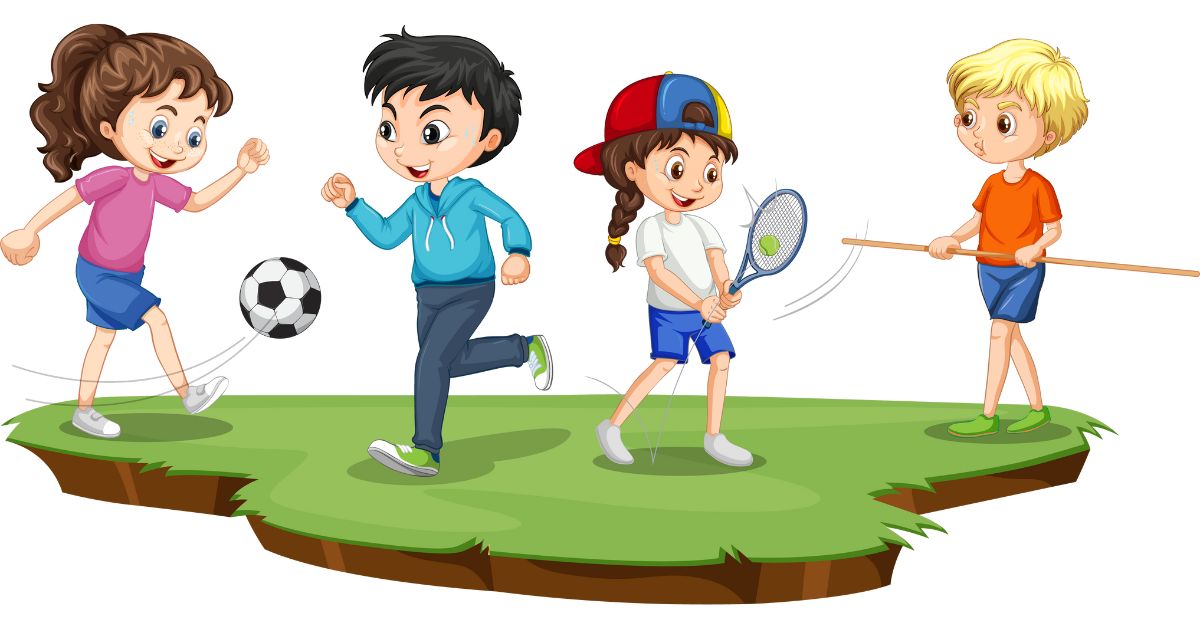In this article:
- Tips for Role Model Parents
- Tip #1 Parents and Role Models Don’t Have to be Perfect
- Tip #2 Role Models Have a lot to Teach About Taking Care of Oneself
- Tip #3 Being a Role Model Starts on Day 1
- Tip #4 Role Models are Clear About Who They Are and What They Stand For
- Tip #5 Role Models and Parents Listen to Know What Guidance Children Need
- Tip #6 Role Models Set the Example How to Set and Reach Goals
- Tip #7 Role Models are Affectionate Too
- Tip #8 Role Models and Parents Say I’m Sorry and Practice Forgiveness
- Tip #9 Role Models Aren’t Afraid to Ask for Help
- Tip #10 Check-In with Yourself
When we open our eyes on day one, our parents and caretakers become our first role models. We are wired from the first day to observe the world around us. And these role models provide us our first clues on how to navigate this new, strange world.
In this article:
- Tips for Role Model Parents
- Tip #1 Parents and Role Models Don’t Have to be Perfect
- Tip #2 Role Models Have a lot to Teach About Taking Care of Oneself
- Tip #3 Being a Role Model Starts on Day 1
- Tip #4 Role Models are Clear About Who They Are and What They Stand For
- Tip #5 Role Models and Parents Listen to Know What Guidance Children Need
- Tip #6 Role Models Set the Example How to Set and Reach Goals
- Tip #7 Role Models are Affectionate Too
- Tip #8 Role Models and Parents Say I’m Sorry and Practice Forgiveness
- Tip #9 Role Models Aren’t Afraid to Ask for Help
- Tip #10 Check-In with Yourself
The major challenge in guiding our child through this new world is it’s a full-time job. Our kids are ALWAYS watching us. And while later in life we may be able to talk our way out of a challenge or failure, with children, from birth on up, it’s all about actions. I can tell my child to be polite a million times, but unless they see me being polite, telling them doesn’t help.
Here are a few points to remember why we, as parents, are our children’s first role model.
- Because children spend most of their time with their parents and caregivers, they usually have the most influence as role models.
- The attitudes of parents, both positive and negative, on any aspect of a child’s life, from extracurricular activities, academics, and generally spending time together, will shape children’s choices.
- The people that parents choose to spend time with, how they treat friends and strangers, and the kinds of activities parents do with their friends will impact a child’s choices, values, and actions with their friends, too.
- A parent’s diet, activity level, and the ability to self-regulate emotions also play a role in determining a child’s lifestyle and emotional life.
Tips for Role Model Parents
I hope the tips below help expand your view on what it means to be a role model and provide you a few ideas on how to embrace the role and learn together as the years go by.
Tip #1 Parents and Role Models Don’t Have to be Perfect
As you go through these tips one at a time, you may tend to pat yourself on the back for some and feel bad about where you are on others.
So, let’s get this out of the way first: Congratulate yourself all you want, but recognize there’s always room for improvement. But feeling bad about overeating, not giving enough hugs, and ignoring your child when you’re too tired: that’s not the point of this blog.
This blog aims to open up all the ways our infants, toddlers, children, kids, teens, and young adults learn from observing us and internalize certain thoughts and behaviors based on their observations of us, both conscious and unconscious, whether we want them to or not.
If you have areas in your life you want to improve on, see Tip #6 Teach Your Child How to Set and Follow Goals. Otherwise, relax, be present, and be mindful of what your actions might teach your child. Most of these tips boil down to just that.
Our child doesn’t need to be perfect for us. So, give yourself some room to grow, make mistakes, and improve some more. If we keep this up till the day we leave the Earth, what a great lesson to leave for the lives we touch.
Tip #2 Role Models Have a lot to Teach About Taking Care of Oneself
My daughter is a beautiful reason for me to take better care of myself. I want to not just be around as she grows up, I also want to keep up. At the same time, beating yourself up more isn’t going to help you take better care of yourself.
Keep working on yourself while emphasizing whatever you do for your child to see and learn from. Healthy living, self-improvement, exercise, turning off the tv, going to the dentist and doctor for checkups, wearing your helmet, and in today’s world, wear your mask when in public too!
Tip #3 Being a Role Model Starts on Day 1
On day one, when your child looked up to you for the first time, he or she bestowed the title of role model, among other titles like “dad,” “the changer of diapers,” and “place to spit-up,” upon you.
Our infant and then toddler observes our behavior: how we move, how we talk, our tone, facial expressions, and so on. Mimicking us is how they learn to talk. Our preschoolers also learn about interpersonal relationships from how we interact with others, and our teens are looking for clues on how to be an adult based on the choices we make.
The sooner we accept the role of role model, even when we aren’t putting forth our best self, the better off we will be as parents.
Tip #4 Role Models are Clear About Who They Are and What They Stand For
I really like this tip.
Now that our daughter is six years old, my wife and I have started to identify some of the values we care about, which are based on our experiences growing up.
It’s a good question for us to ask ourselves—what do I stand for? Equality, the environment, compassion, faith. Whatever the issues you care about, see if you can remember an experience from growing up that defined the importance of the value. This is the experience, the story, if age-appropriate, of course, we want to be sharing with our children.
Tip #5 Role Models and Parents Listen to Know What Guidance Children Need
The best way to know what your child needs from a role model is to be an active listener.
What does active listening mean? Active listening is listening to your child with your full attention and providing verbal and non-verbal cues that you are present. A few non-verbal cues include maintaining eye contact, delivering a smile, sitting up straight, mirroring their facial expression, and not being easily distracted by any outside noise.
Now, does this mean we are actively listening to all the time? Maybe that’s possible for some parents, but if my six-year-old is explaining for the tenth time what she wants for her birthday, forget it.
So, pick your opportunities. When my daughter comes home from school (or when the online class ends), I like to check-in and see how the class went. Or when our daughter comes back from a friend’s house, I’ll ask what did they do?
The most important idea here is to establish from a young age that we are interested in their lives, their opinions, and their experiences. Establishing this pattern early on sets us up for communication during their teenage years. . We need them to believe that we are interested, that we want to listen to their stories and we can help them if needed.
We’re active listening not only to understand what our kids need, but we are also modeling the same behavior for them. We want our kids to also be active listeners for us, their friends, and future kiddos if they so choose.
Tip #6 Role Models Set the Example How to Set and Reach Goals
If you’re not in the habit of setting goals and creating a plan to reach a goal, give it a shot. This doesn’t come naturally to me, because it’s such an important life skill when I do set goals now, I like to include my daughter in the process.
Because I’ve been working on my health, one of my goals is to walk for a minimum of one hour every day. I’ve shared with her my goal, and almost every day, either before or after I’ve walked, I’ll give her a quick update. Most of the time, it’s simply, “I got my walk in today,” or “I feel great after my walk,” or “it’s freaking hot outside!” I also take care to share my experience on the days when it’s hard. When I tell her “I’m tired” or “I’m busy,” but she seems me go outside and walk anyway, she observes the skill of grit. When I skip a day of walking, but then start up again the next day, she observes the skill of perseverance. If we only talk to our kids about our successes, we limit their understanding of what it takes to succeed and hence limit their learning.
Tip #7 Role Models are Affectionate Too
Show your child you are present by actively listening and responding to what they share with you. It’s important to let them know we are physically present– a hand on their shoulder, a pat on their backs when passing by, and a full-on hug for any reason.
Tip #8 Role Models and Parents Say I’m Sorry and Practice Forgiveness
This is such a valuable lesson. As a role model or parent, we are not perfect.
How many can remember our parents apologizing to us, admitting when they made a mistake. In my opinion, we should all have such memories. Too few of us do.
When your child expresses her apology, be sure to let him or her know that you forgive them. Or that you’re over it. Whatever you feel more comfortable with.
But also let them know what forgiving yourself means. Talk about and give examples of how you practice compassion for yourself. You are their parent, you are their role model, but you don’t have it all figured out, you’re still learning too.
Be sure to make this part of the discussion early on. As your child grows into this wisdom as the years go by, they’ll appreciate the guidance. I mean, I’m guessing they will, I know I do.
Tip #9 Role Models Aren’t Afraid to Ask for Help
Either with your kids or behind the scenes, depending on the situation, there’s no shame in parents asking for help.
We all need help and support, and the consequences of not being connected to a support group can be scary.
When you find out your kid failed math one of your first reactions should be, why didn’t you ask for help? We want our kids to know they can come to us for anything. But they are more likely to do so if they have observed you asking for help. That practice helps them to learn that asking for help is a normal thing to do.
In turn, when you need help, let them know. “Can you help me cook spaghetti?” to a five-year-old can transition to “Can you run to the store, I forgot to buy spaghetti?” when they are a teenager.
Tip #10 Check-In with Yourself
Set a reminder on your calendar that once every week, or every two weeks, take a few minutes to review your family happenings and how you reacted. Think about how you acted in each situation and try to imagine what your kid may have learned from observing your actions. Most of us will be able to reflect on some positive times and others where we might wish our kid hadn’t observed us. Be kind to yourself and pat yourself on the back for being proactive in wanting to be a better parent. Being a role model and parent isn’t easy, but we also don’t improve as parents or role models unless we take some time to identify what goes well, what didn’t go so well, and what we can work and improve on. And then not forget to ask for help from our role model community of parents. We all need help, even our role models.
If you have any resources or learned wisdom from being a role model with your kids, please share in the comments below.








